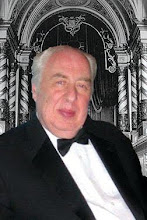Monday, January 10, 2011
 Oscar & Emmy Watch: Musings & Misgivings: Holiday Presents
Oscar & Emmy Watch: Musings & Misgivings: Holiday Presents
The TV show was CNN’s Christmas Week repeat of a conversation between its Chief Medical Correspondent, Dr. Sanjay Gupta, and actor Michael J. Fox . It’s a remarkable, life-affirming one-on-one broadcast in which Fox talks with considerable clarity, courage, grace, optimism and even humor about his coping with, and work on behalf of, Parkinson’s disease, which he’s had for 19 years.
“It’s the gift that keeps on taking,” he says, “but it is a gift because it’s opened me up to a more compassionate, curious, risk-taking person. I wouldn’t call the [Parkinson’s] foundation my magnum opus, but it’s definitely the most important thing I have ever done or will probably do in my life.” What do doctors know and not know about the disease? What medications work—and for how long? What of stem cell research? And brain surgery? Fox is inspiring and has a lot to say and to teach us about helping others, and appreciating even in the most trying circumstances, what we have.
The “forgotten” classic that TCM showed Christmas Eve (and is also now available on DVD) was 1937’s Make Way for Tomorrow. Leo McCarey won the first of his two directing Oscars for The Awful Truth (the second came in 1944 for Going My Way), but even he acknowledged that Make Way for Tomorrow is the superior film and perhaps the best thing he ever did. Few saw the film then and not many know of it today for two simple reasons: no stars and its downbeat subject matter--old age. “My God,” Orson Welles told interviewer Peter Bogdanovich. “That is the saddest movie I have ever seen.” You may feel the same way.
The story deals with a devoted elderly couple, Lucy and Barkley Cooper (brilliantly portrayed by two of Hollywood’s all-time character actors, Beulah Bondi and Victor Moore), who lose their house to a bank foreclosure. None of their five children who have left the nest can take in both of them, so each parent reluctantly goes to live, hundreds of miles apart, with a different child. What follows is an alternately disturbing and tender tale of a long, loving marriage shattered by times that are hard and grown children, even some well-meaning ones, who are unable to square their parents’ needs with their own. As the story unfolds there are no false sentiments or facile judgments; no one is necessarily to blame.
What happens to the Coopers—suddenly losing not only one another and then, as time passes, shreds of their dignity and control of their own destiny--seems both painful and inevitable. The timeless role-reversal message it imparts about how to truly honor our mother and father when their independence is gone and they’ve become our dependents is as emotionally relevant and wrenching today as it was more than 70 years ago. During the climactic scene on a railway platform, it will be difficult for you to not shed a tear.
And on that cheerful note, a happy New Year to all!
Read more: http://technorati.com/blogging/article/oscar-emmy-watch-musings-misgivings-holiday/page-2/#ixzz1AhE22G2t
Subscribe to:
Post Comments (Atom)
Total Pageviews
Share It
About Me
Blog Archive
-
▼
2011
(7)
-
▼
January
(6)
- Oscar & Emmy Watch: Musings & Misgivings: 2011 Osc...
- Predictions- Oscars Nominations Tuesday January 25
- OSCAR AND EMMY WATCH: MUSINGS & MISGIVINGS:Golden ...
- Oscar&Emmy Musings: Manage the Odds on The Golden ...
- Oscar & Emmy Watch: Musings & Misgivings: Holiday ...
- OSCAR AND EMMY WATCH: MUSINGS & MISGIVINGS--Make E...
-
▼
January
(6)
Powered by Blogger.


0 comments:
Post a Comment